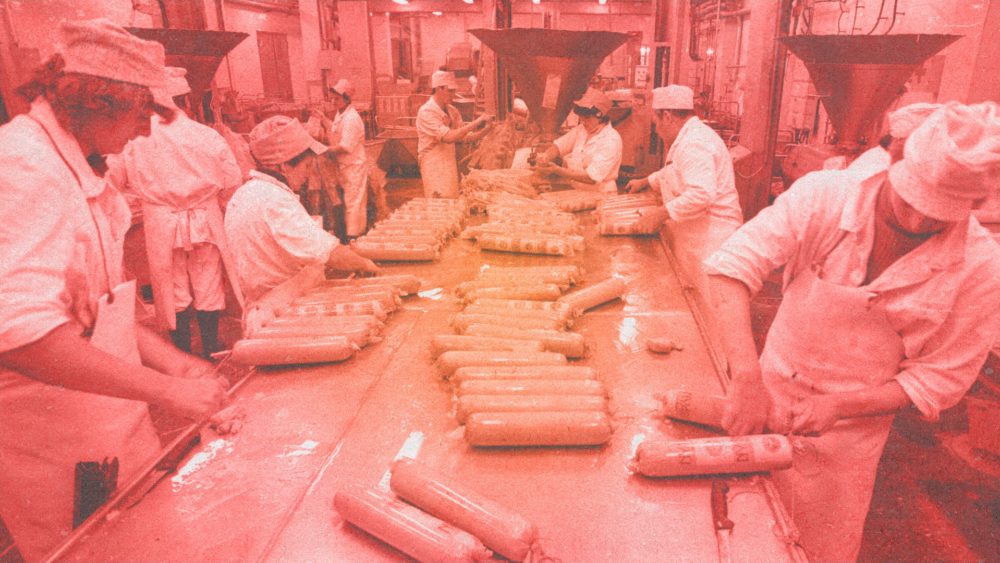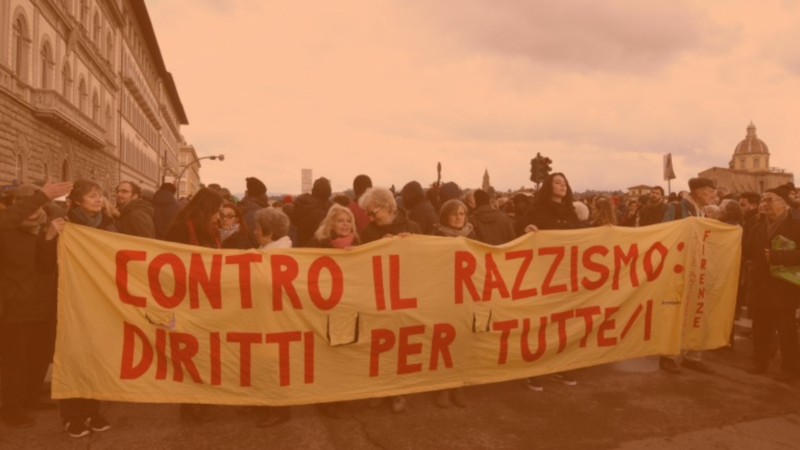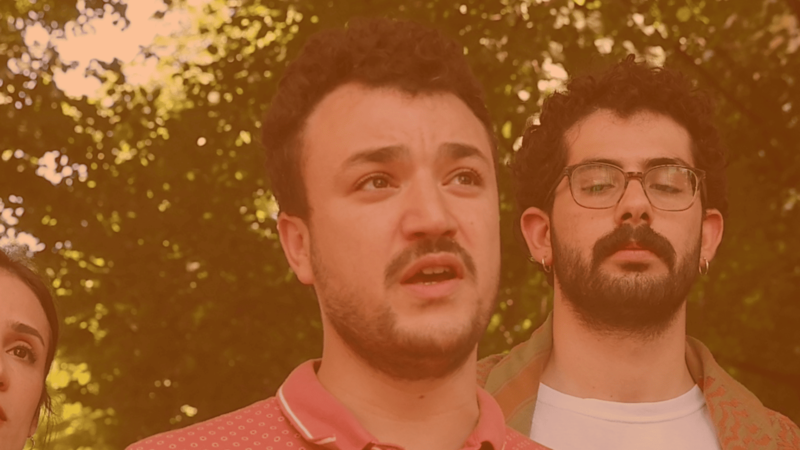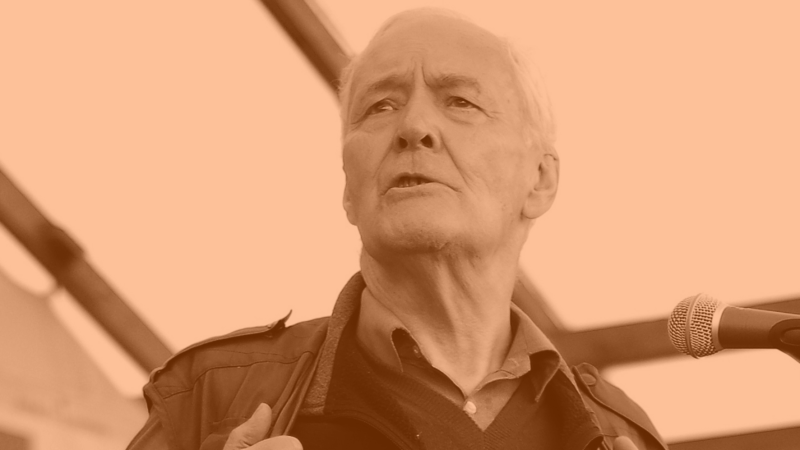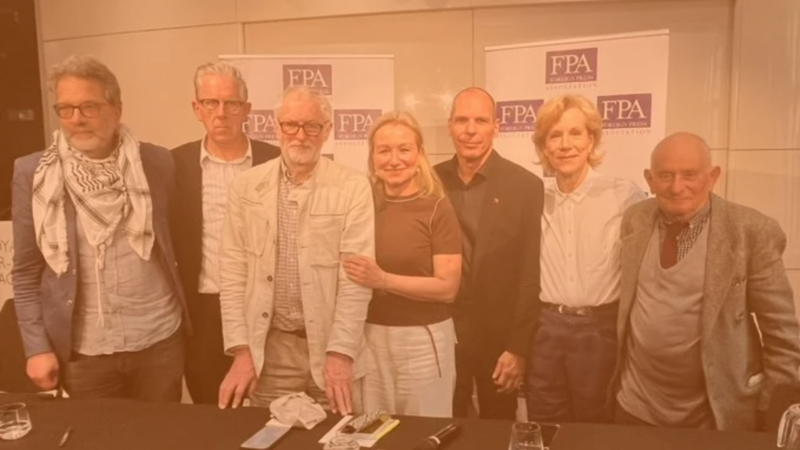After the demonstrations and strikes by the male and female workers at Nobre Alimentação, it is once again clear that the profit-making machine that is capitalism does not fulfill its purpose in society.
Recently, with a high rate of adhesion, the workers of Nobre Alimentação – known for manufacturing sausages – organised strikes and demonstrations, using these fundamental tools to express their deep discontent with the company. They are fighting for higher wages, shorter working hours and more vacation days, in addition to a career advancement system that, so far, seems to be completely non-existent.
During the demonstrations, speaking to the media, one of the employees said that the company created an internal slogan that it used to communicate to the people who work there: “We are a Noble [Nobre] family.”
The demonstrators took the opportunity to turn this motto inside out and bring it to the reality that they know: “We are a poor family.”
The inertia in the rise of salaries
In the SIC Notícias report mentioned above, it is said that the overwhelming majority of Nobre’s workforce receives the minimum wage allowed by law. This may, at first glance, seem like an exception to the rule, but it is not. It is just capitalism at work. People are seen as a resource like any other; a cost to be minimised in order to maximise profit.
This is probably intuitive: whoever has the power (or capital) will want to keep it and make it grow. From 2020 to 2021, Nobre’s profits increased, while its personnel cost decreased. And so the share of revenue going to the owners increases.
Viewed from this perspective, we realise that low wages are nothing more than the employer’s ‘rational’ choice: to maximise shareholder profits, it will have to minimise the wages of those who produce the wealth. In the case of Nobre, as in so many other places in Portugal, Europe and all over the world, this is true. And it won’t stop being true until we radically change our economic system.
Sales to multinational capital
Another aspect included in the report is the notorious degradation of the working conditions from the moment it was sold to multinational giants. Since it left the ownership of the original family (the Nobre family), the food company has passed through Spanish and Chinese hands, until it reached its current owners, a Mexican group called Sigma (which, by the way, belongs to a corporation called Alfa).
What is of relevance here is that, in the international market of the “billions”, people are a mere product. Just as they buy and sell factories, machinery and land, they also buy people. We become just another cell in their ultra-efficient Excel sheet. And when we are a cell in an Excel sheet, the goal becomes one: to increase the number on the last row of the sheet.
“We are a Noble family”
Internally, Nobre’s management tries to convince male and female workers that they belong to a family. This tactic, which is used internally within several companies, serves as an attempt, often successful, to make workers more docile, making it taboo to talk about wages with female colleagues – given that everyone should work for the love of the jersey or, in this case, the family – or that a feeling of guilt or betrayal arises for wanting to belong to unions or organise strikes.
The marketing genius who first thought of using the term “family” in this way is to be commended. For many of us, family is a core aspect of life. They are people for whom we have very strong emotions, often positive ones, but above all, an almost undeniable intangible connection.
We sacrifice ourselves for family, even when we disagree. We feel a strong will to help her overcome any challenge, even after going through bad times. It is no coincidence, therefore, that companies do not use terms like “community” or “neighborhood”. Family touches us on a deep level, which they try to take advantage of.
The politics of intimidation as a resource of desperation
A shareholder’s favourite worker is the lone worker; the one who does not communicate with his colleagues, the one who is not confronted with his own lack of rights. And this is exactly what a union (whether in the form of a union or not) gives people. A union gives workers the opportunity to democratically organise, debate, and think of solutions to problems. At the point where workers were able to organise, we immediately see the natural reaction on the part of management: fear.
Without production capacity, the company cannot respond to its customers, loses revenue, and can even generate serious financial losses. All this is reflected in the company’s valuation and in the earnings of its owners.
And this is exactly why this fear of bosses and shareholders turns into a defensive and aggressive reaction.
DiEM25’s position: Cooperatives as a business solution
There is an alternative. A fair alternative, designed to organise businesses around supplying human needs and wants, in a sustainable way. It is called a cooperative.
Cooperatives are non-profit enterprises democratically controlled by the workers, who own the capital of the enterprise in equal parts. In addition, cooperatives must follow a set of principles. One of these is that they should cooperate with other cooperatives, creating a national and international network of companies focused on people, and where the main objective is to fulfill needs and desires, not to generate profits.
In fact, the concept of profit, in a way, fades away! The company’s revenues are distributed equally among all members of the cooperative, or reinvested if the members feel that this is the best use of the revenues.
Let’s do a creative exercise: what would Nobre look like if instead of a capitalist company, controlled by the shareholders, it were a cooperative, democratically controlled by the workers? The first step would be to create the bylaws that guide how the cooperative operates on a day-to-day basis – what work is done, what functions exist within the company, and so on.
These bylaws would be written, reviewed and voted on by all female workers. The second step would probably be to elect some management bodies, such as a board of directors and a board of ethics, for example. Note the way these people come into power: by election, not by appointment or external hiring; anyone who belongs to the bodies has to be a member of the cooperative. From here on, all management and day-to-day work is managed by the same people who do the work itself. They decide their own salaries, when to buy new machinery, what food to produce, when to move the factory, how many days of vacation they think are appropriate, where and how often to have company dinners, and everything else you can imagine for the day-to-day running of Nobre.
Let’s not forget that in all good democracies, there is turnover; every year, or any period decided upon, new elections will be held for the company bodies, thus ensuring that there is not one person or small group taking the cooperative by the reins for their own gain. And so Nobre could be managed democratically.
Today, in Portugal and around the world, there are countless successful cooperatives. Many of them operate in the area of food or agricultural production. However, there are already more recent examples of cooperatives operating in areas typically ‘reserved’ for purer capitalism, as is the case of The Drivers Cooperative in New York. A natively digital cooperative that competes with giants like Uber or Bolt. It’s just one example of how cooperatives can be one of the core tools in a post-capitalist society that is fairer and provides a better life for all.
Filipe Medeiros
On behalf of DiEM25 in Portugal
Do you want to be informed of DiEM25's actions? Sign up here





